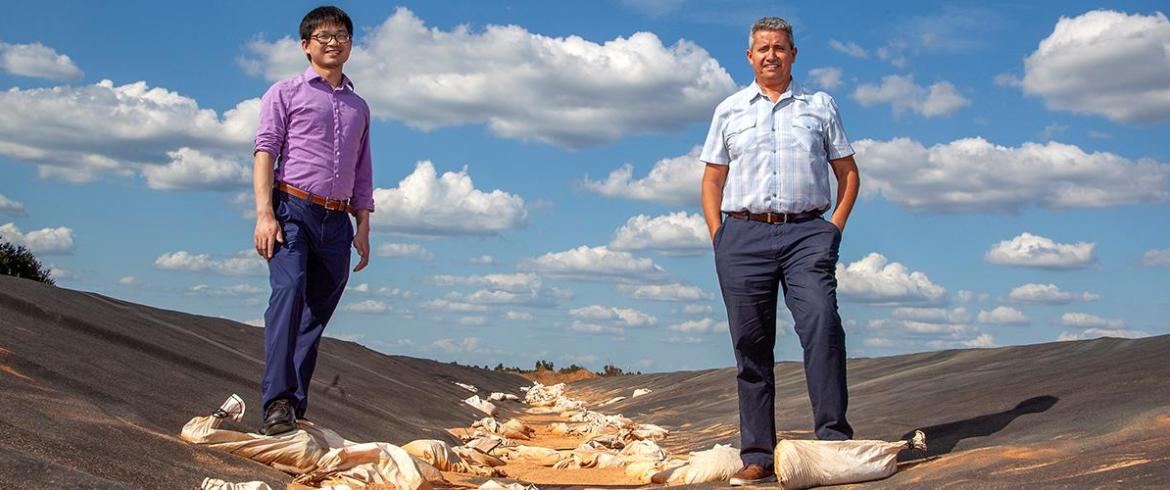
Youneng Tang and Tarek Abichou, professors of civil and environmental engineering
This article was featured in the Annual Engineering Research Report (2019-2020).
Researchers at the FAMU-FSU College of Engineering are looking at new methods to improve the environmental sustainability and the economics of landfill design and operation.
Youneng Tang, a professor of civil and environmental engineering, is developing techniques to recover selenium from landfill leachate and wastewater, a method that could be used for commercial purposes. Selenium is a rare element with diverse uses in glass, electronics and printers, to name a few. If allowed to contaminate groundwater, selenium can be toxic to both humans and animals.
Selenium contamination is caused by discharge from petroleum refineries, erosion of natural deposits and discharge from mines. Tang’s group recovers selenium from contaminated water using microbes to convert the dissolved selenium contaminants into elemental selenium nanoparticles.
Tarek Abichou, a professor of civil and environmental engineering, has established a national and international reputation in sustainable solid waste management research. Some of his research activities include designing, analyzing and testing different components of landfills and other waste containment structures to reduce their environmental impact.
The methods Abichou has developed can turn old landfills into community parks and wildlife preserves by using alternative methods of covering solid waste facilities with vegetative layers. These innovative covers exploit the water capacity of fine soils and utilize vegetation to help with the water removal, reducing infiltration into the underlying waste. He is also investigating the mitigation of greenhouse gas emissions from landfills using bio-oxidation of methane via bio-cells, bio-covers and biofilters.
Currently, Abichou is testing the long-term performance of Geosynthetic Clay Liners (GCLs)—widely used as bottom barriers in Florida’s landfills—under different geochemical environments. His team developed new clay-polymer combinations that can be used in the manufacture of futuregeneration GCLs more compatible with a wider-range of more aggressive leachates.
